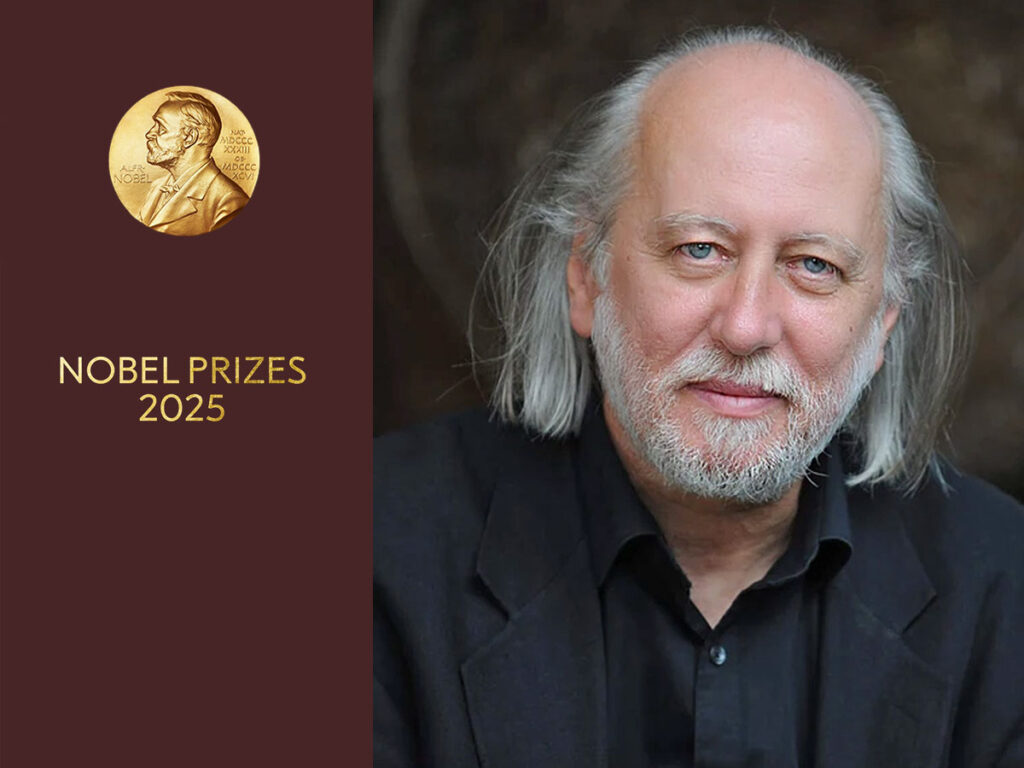
This year’s verdict from the Swedish Academy is undoubtedly a celebration of uncompromising literature. The 2025 Nobel Prize in Literature was awarded to the Hungarian author László Krasznahorkai – a writer whose work defies simple classification, placing high demands on the reader but offering a profoundly moving existential experience in return.
For many authors and publishers, this is a signal that there is still a place for prose that is dense, dark, and philosophically profound.
Who won the 2025 Nobel? Profile of the Laureate
László Krasznahorkai, born in 1954 in Gyula, Hungary, is a cult figure in contemporary literature. Critics often describe him as the “Hungarian master of the apocalypse” and place him in the same echelon as writers like Franz Kafka and Samuel Beckett.
For years, he remained an author known mainly in connoisseurial circles, but his reputation grew steadily. In 2015, he received the prestigious Man Booker International Prize. His name had appeared on the lists of Nobel favourites for years.
Krasznahorkai is also known for his long-standing collaboration with the acclaimed director Béla Tarr. His most important novels became the basis for renowned film adaptations – namely the monumental “Sátántangó” (based on the novel of the same name) and “Werckmeister Harmonies” (based on “The Melancholy of Resistance”). The two artists also frequently collaborated on screenplays (including “The Turin Horse”), co-creating the unique, dark atmosphere of these works.
The 2025 Nobel Prize in Literature: The Swedish Academy’s Official Justification
The Swedish Academy’s decision shines a light on the uniqueness of Krasznahorkai’s prose. As we read in the official announcement, the Nobel Committee awarded him the prize:
For his compelling and visionary oeuvre that, in the midst of apocalyptic terror, reaffirms the power of art.
This is a recognition of a writer who, in his dense, hypnotic narratives, is not afraid to ask fundamental questions about meaning, order, and the inevitability of the end, while simultaneously finding a saving power in the literary form itself.
László Krasznahorkai’s Most Important Works
The Hungarian laureate’s work is not the easiest to engage with, but three titles are considered key to understanding his phenomenon.
Satantango (1985)
This is probably the author’s most famous novel. The book takes the reader to a collapsed, depopulated Hungarian collective farm, whose inhabitants are mired in apathy and stagnation. The arrival of a charismatic conman, Irimiás, who promises them a new beginning, sets off a spiral of events leading to inevitable disaster.
The Melancholy of Resistance (1989)
The novel’s plot unfolds in a provincial town, which is visited by a mysterious circus. The main attraction is a gigantic whale and an enigmatic figure known as “The Prince”. Their presence becomes a catalyst for growing chaos, rebellion, and the revealing of the crowd’s darkest instincts, exposing the fragility of the social order.
War & War (1999)
The novel tells the story of an archivist, György Korin, who accidentally discovers a mysterious manuscript. Convinced of its extraordinary value, he decides to save it from oblivion, setting off on a journey to New York to publish the text on the internet. It is a story about a desperate attempt to save meaning in a world heading towards entropy.
The Style That Defines the Master
László Krasznahorkai’s prose is instantly recognisable. The author is famous for his hypnotic style, which rejects traditional narrative structures.
The characteristic features of his writing include:
- Meandering sentences: His phrases often stretch for many pages, almost devoid of full stops. This creates a dense, hypnotic web in which the reader must immerse themselves.
- Dark atmosphere: The worlds presented by Krasznahorkai are almost always in a state of decay, devoid of hope and transcendental meaning.
- Philosophical depth: Beneath the surface of the plots lie questions about the nature of evil, the will to power, the meaning of history, and the possibility of salvation.
Summary
The selection of László Krasznahorkai is a strong signal sent by the Swedish Academy. It is an award for total literature, demanding focus from the reader and a readiness to confront difficult truths. It is also a nod to Hungarian literature and to a part of Europe that still has unique, unsettling artistic visions to offer the world.
